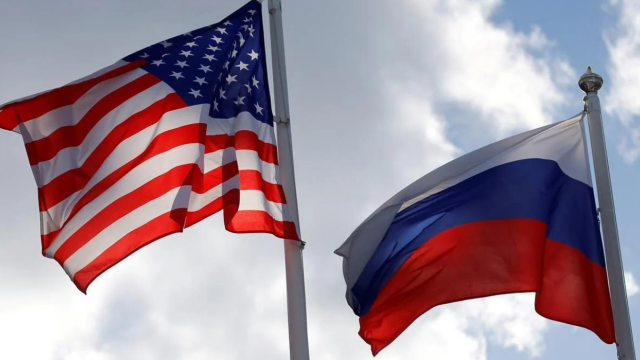Officials from the United States and Russia discussed several energy sector agreements on the sidelines of negotiations held this month aimed at achieving peace in Ukraine, according to five Reuters sources. These deals were proposed as incentives to encourage the Kremlin to agree to peace in Ukraine and Washington to ease sanctions against Russia.
Russia has been cut off from most international investments in its energy sector and from major deal-making due to sanctions imposed after the invasion of Ukraine that began in February 2022.
The energy deals discussed by US and Russia
Officials discussed the possibility of Exxon Mobil rejoining the Russian oil and natural gas project Sakhalin-1, three of the sources reported.
They also raised the possibility of Russia purchasing American equipment for liquefied natural gas (LNG) projects, such as Arctic LNG 2, which is subject to Western sanctions, four sources reported.
Another idea was for the US to purchase nuclear icebreaker ships from Russia, according to a Reuters report on August 15.
The talks took place during US envoy Steve Witkoff’s visit to Moscow earlier this month, when he met with Russian President Vladimir Putin and his investment envoy Kirill Dmitriev, according to three of the sources. They were also discussed at the White House with US President Donald Trump, according to two sources.
These agreements were also briefly discussed at the Alaska summit on August 15, according to one source.
“The White House really wanted to get a front page after the Alaska summit, announcing a major investment deal,” said one of the sources. “So Trump feels he has achieved something,” they added.
Trump and the national security team continue to work with Russian and Ukrainian officials toward a bilateral meeting to stop the killings and end the war, a White House official said in response to questions about the agreements. It is not in the national interest to continue public negotiations on these matters, the official said.
A spokesperson for Dmitriev declined to comment.
Exxon Mobil declined to comment. Rosneft and Novatek did not respond to requests for comment.
The talks and sanctions threats
Trump has threatened to impose more sanctions on Russia unless peace talks make progress, and to impose strict tariffs on India, a major buyer of Russian oil. These measures would make it harder for Russia to maintain the same level of oil exports.
Trump’s transactional approach to politics has already been evident in Ukraine talks, when earlier this year the same officials explored ways for America to revive Russian natural gas flows to Europe. These plans have been delayed by Brussels, which submitted proposals for the complete elimination of Russian natural gas imports by 2027.
The latest discussions have shifted to bilateral agreements between the US and Russia, sidelining the European Union, which, as a bloc, has remained steadfast in its support for Ukraine.
On the same day as the Alaska summit, Putin signed a decree that could allow foreign investors, including Exxon Mobil, to recover stakes in the Sakhalin-1 project. This depends on whether foreign shareholders take measures to support the lifting of Western sanctions against Russia.
Exxon withdrew from its Russia operations in 2022 after the invasion of Ukraine, taking a $4.6 billion loss. Its 30% stake in the Sakhalin-1 project in Russia’s Far East was seized by the Kremlin that year.
The US has imposed several sanctions on Russia’s Arctic LNG 2 project since 2022. The project is majority-owned by Novatek, which began cooperating with Washington last year, trying to restore relations and lift sanctions.
The Arctic LNG 2 plant restarted natural gas processing in April, albeit at a low rate, according to Reuters. This year, tankers subject to sanctions have picked up 5 LNG cargoes. One production unit had previously shut down due to export difficulties from sanctions.
This project was intended to have three LNG processing units. The third is in the planning stage, with technology expected to be supplied by China.
Washington seeks to push Russia to buy American technology instead of Chinese, as part of a broader strategy to alienate China and weaken relations between Beijing and Moscow, according to one of the sources.
China and Russia declared a strategic partnership “without limits” just days before Putin sent troops to Ukraine. Xi has met Putin more than 40 times in the last decade, and Putin has recently characterized China as an ally.




